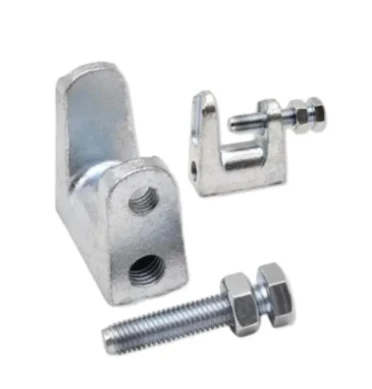নভে. . 24, 2024 02:29 Back to list
metric flat washer sizes
Understanding Metric Flat Washer Sizes A Comprehensive Guide
Flat washers are a crucial component in various mechanical assemblies, serving to distribute loads and prevent damage to the surfaces being clamped together. Particularly in metric applications, understanding the sizes, specifications, and uses of flat washers can enhance the performance of your projects and ensure long-lasting durability. This article aims to provide a comprehensive overview of metric flat washer sizes, highlighting their significance and how to choose the right one for your needs.
What is a Metric Flat Washer?
A flat washer is a thin, circular piece of metal with a hole in the center, designed to be placed under the head of a bolt or nut. The primary purpose of flat washers is to distribute the load of the fastener and prevent damage to the material being fastened. In metric systems, sizes are specified in millimeters, making them essential for compatibility with metric bolts and screws.
Common Metric Flat Washer Sizes
Metric flat washers come in a variety of sizes, generally categorized by their inner diameter (ID), outer diameter (OD), and thickness. Some common sizes include
- M3 Inner Diameter 3mm, Outer Diameter 8mm, Thickness 0.3-2.5mm - M4 Inner Diameter 4mm, Outer Diameter 9mm, Thickness 0.4-2.5mm - M5 Inner Diameter 5mm, Outer Diameter 10mm, Thickness 0.5-3.0mm - M6 Inner Diameter 6mm, Outer Diameter 12mm, Thickness 0.5-4.0mm - M8 Inner Diameter 8mm, Outer Diameter 16mm, Thickness 1.0-5.0mm - M10 Inner Diameter 10mm, Outer Diameter 20mm, Thickness 1.0-6.0mm - M12 Inner Diameter 12mm, Outer Diameter 24mm, Thickness 1.5-7.0mm
These sizes cater to most standard applications, but it's important to note that specific industries may require custom sizes based on unique engineering demands.
Materials Used for Metric Flat Washers
Metric flat washers can be made from a variety of materials that affect their strength, durability, and corrosion resistance. Common materials include
- Steel Galvanized or plain carbon steel washers are prevalent due to their strength and affordability. However, they may require protective coatings to prevent rusting.
metric flat washer sizes

- Stainless Steel Offering excellent corrosion resistance, stainless steel washers are ideal for applications in harsh environments, such as marine and chemical settings
.- Plastic or Nylon These washers are non-corrosive and lightweight, making them suitable for electrical applications and environments where metal could cause short circuits.
Choosing the Right Flat Washer
When selecting the correct metric flat washer, consider several factors
1. Compatibility with Fasteners Ensure the inner diameter aligns with the bolt or screw size. The washer should fit snugly against the fastener to maximize load distribution.
2. Load Requirements Evaluate the weight and pressure the assembly will endure. Thicker washers may be needed for heavier loads.
3. Environmental Conditions For outdoor or corrosive environments, opt for stainless steel or plastic washers to prevent degradation.
4. Standards and Specifications Check if your application requires flat washers that meet specific standards, such as ISO or DIN.
Conclusion
Metric flat washers play an essential role in ensuring the functionality and longevity of fastened assemblies. Understanding the various sizes, materials, and specifications is vital for selecting the right washer to meet your project's demands. Whether you are a manufacturer, engineer, or DIY enthusiast, having a grasp of metric flat washer sizes can significantly enhance the quality and reliability of your work. By considering the aforementioned factors, you can ensure that your chosen washers offer the proper support and protection, paving the way for successful projects in various fields.


